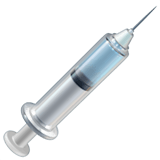
How to move to Luxembourg with a Blue Card and a regular work visa
We tell you who and how can move on a "blue card" and ordinary work visa, how to do it and what documents are needed
Find out if you can move to Luxembourg for work purposes
Moving to Luxembourg on a work visa and obtaining a residence permit is one of the popular options for legalisation in the Grand Duchy.
In the planning phase
In Luxembourg it is possible to legalise under the Blue Card — a pathway for highly skilled professionals, and under the Luxembourg ordinary work visa — an option for all other workers. It is more advantageous to enter with the Blue Card, but it is important to make sure that you meet the requirements of this programme.
What needs to be done
- Make sure you are a third country citizen
Citizenship of any country, except EU countries, Norway, Iceland, Liechtenstein and Switzerland, is suitable for Blue Card relocation.
- Start looking for a high-paying job
One of the main requirements for moving with a Blue Card is to show a salary in a specialised segment higher than the average market salary in Luxembourg by at least 1.5 times. If you are a teacher, it should be in the education sector, if you are a doctor, it should be in the medical sector. According to the requirements of Luxembourg, the minimum salary threshold per year for applicants for the "blue card" must be at least 84,780 euros. However, there are a number of scarce professions for which the threshold is much lower: €67,824 per year. These are almost all professions related to development and analytics.
- Prove expertise: provide a university degree or work experience in your speciality
If it is a diploma of higher education, it must be a specialised one. The document must prove that you have a specialist or master's degree, i.e. that you have studied at a higher education institution for at least 5 years. You will need all the pages of the diploma, including an attachment page with a list of all the subjects studied. As an alternative to a diploma, you can have at least 3 years of work experience in your field of study. For this purpose, an employment history or work contracts recognised in Luxembourg must be submitted.
Before entering Luxembourg
For both regular work visas and Blue Card visas, you will need proof of employment status from your employer. Most of the documents will relate to your work contract. Be prepared for this.


The employment process in the Grand Duchy can be divided into 5 stages
Finding suitable employment, including assessing English-speaking jobs in Luxembourg can be done in a number of ways:
- Through social networks and messengers: LinkedIn, Facebook, Telegram.
- Through the local employment agency ADEM, where you can view open jobs in Luxembourg, including jobs for English speakers, etc.
- Through acquaintances: on their advice and recommendations.
When searching, keep in mind that the minimum salary per year must fulfil Luxembourg's requirements for Blue Card entry:
* Almost all professions related to development and analytics are considered scarce. These include: mathematicians and statisticians, system analysts, software, website and multimedia developers, application programmers, database designers and administrators, as well as system administrators, computer network specialists
A well-written CV and cover letter are important prerequisites for successful employment in Luxembourg.
CV
Cover letter
Recruitment in Luxembourg, as in the whole EU, is handled very responsibly. Usually, those seeking employment in Luxembourg from abroad go through several online interviews. On average, the conversation lasts 45-60 minutes.
Being invited for an interview means that your CV and cover letter are potentially of interest to the hiring company. However, be prepared that you will have to go through more than one interview to get the position you want.
Typically, when searching for a candidate for an open position, the following are used:
Telephone interview
Online
In-person
In order to find a job in Luxembourg and ultimately get the position you want, it pays to prepare for any interview stage and monitor yourself on a number of key points.
How a job interview in Luxembourg takes place and exactly what to prepare for
The employer is obliged to submit a vacancy notice to the National Employment Agency (ADEM) before hiring you. It usually takes 3-4 weeks to wait for this document. Sometimes, the period can be longer.
The ADEM certificate is an important document that confirms the employer's right to conclude an employment contract with a third-country national and allows the employee to obtain a temporary residence permit.
Third-country employees should be aware that employment and selection for a vacancy has its own nuances.
- It is the employer's responsibility to initiate the search in an objective manner, they do this by submitting details of the open vacancy to ADEM
This is a procedure that searches for a suitable candidate on the European labour market and finds out if there is a suitable candidate in the EU. Only if there is none, the employer has the right to hire an employee from a third country and request a certificate authorising him to hire the employee even without his registration in ADEM.
- Both parties are required to sign the employment contract
The employer is also obliged to sign a labour contract with the employee stating the starting date of work.
Both the ADEM certificate and the employment contract must be attached to the application for temporary residence.
Everything that was discussed and agreed upon at the interview should be written in your contract. This applies to the conditions of relocation, cultural and language adaptation, remuneration, reimbursement of any expenses, dismissal at will and if the company settles, etc.
The employment contract must be drawn up in accordance with Luxembourg law in writing in duplicate and signed by both parties.
In addition, the contract includes everything related to the conditions of relocation: cultural and linguistic adaptation, legal support, reimbursement of any expenses and any other points of verbal agreements.
Wait for the ADEM certificate and the employment contract from your employer. Without these documents you will not be able to apply for a visa and obtain a temporary residence permit in Luxembourg
Of course, it was a nervous and stressful process, but I had a lot of support from my mum and my wife, which helped me a lot. Now I just have to wait for the offer and relocate to Luxembourg
These papers should be prepared in advance and have them in hand to save time and nerves when applying for a visa and during the subsequent stages of the move. The rest of the documents can be collected later.


When we signed the contract, an HR manager started working with me and accompanied me at every stage. He also gave me a list of all the necessary documents. A lot of time was taken up by the criminal record certificates. And it also took a lot of time for apostilisation. We were not sure whether it was necessary in Luxembourg, but we decided to be reinsured. It is better to pay a little more once, but to have all the documents in your hands at once, usable.
In addition to the obligatory and very necessary documents that must be prepared in advance, there are also those that are recommended to take with you. In Luxembourg, in order to get on with your daily life, you will need to confirm and complete a lot of paperwork. To make it easier to do this, it is a good idea to collect the documents from your place of residence.
Read article
In order to obtain a temporary residence permit, you must submit an application for a temporary residence permit with a complete set of documents to the Immigration Office of the Luxembourg Ministry of Foreign Affairs or to a diplomatic representative. It is important to fill in everything correctly at once and submit all documents once, otherwise they will be returned to the applicant.
If the documents are not in French, German or English, a notarised translation into one of these languages must be attached.
What to do:
- Correctly fill in the application for a temporary residence permit.
- Collect the entire package of documents with translations to submit with the application.
- Submit the document package to the Immigration Office of the Luxembourg Ministry of Foreign Affairs or to a diplomatic representative.
- Wait for the decision: The Autorisation to stay (this is another name for the temporary residence permit) will arrive in the post.
The wait for consideration is from two months. But we were very lucky again. A little less than a month passed from the time of submission, and my manager had already received our temporary residence permits. In the end, the Ministry issued two permits: one for me, as a future Blue Card holder, and one for my wife, as a family member.
After obtaining a temporary permit, a D visa must be issued to enter the country.


What to do
- Check whether the passport has at least 2 free pages for visas and when it expires
- Obtain a temporary residence permit
- Collect documents to apply for a D visa
- Personally submit the collected visa application package in duplicate to the Immigration Office of the Luxembourg Ministry of Foreign Affairs or to a diplomatic representative.
- Meet the filing deadline: it is important to do this within 90 days of receiving the temporary residence permit
- Wait for authorisation to issue a D visa
After entering Luxembourg
During your stay in Luxembourg, a registration and residence address will be required. You can start looking for a flat search remotely, but it is recommended to see your future accommodation in person. For the first time you can stay in a hotel or find a flat on AirBnB. Afterwards, you will need to rent a flat on a long-term basis.
The package of documents is sent to the flat owner for evaluation. In case of a favourable decision, the apartment is inspected. Then both parties draw up an acceptance certificate and conclude a contract.
Finding and renting a flat in the Grand Duchy is an important issue for every expat. The choice of municipality, city, neighbourhood, budgeting, contracting and many other important nuances, we have described in detail in a separate guide, which we suggest you study.
How to rent an apartment in Luxembourg

You must come to the municipality where you intend to live with a package of documents.
In the administration you need to join the electronic queue and then approach an employee. After the application is processed, he or she will give you two important documents:
- Your Social Security number is your date of birth in the format of year-month-day and five more digits.
- Declaration of Arrival - it serves as an authorisation to work and stay in Luxembourg until an official residence permit is issued.
A list of the official websites of the communes can be found on the Guichet.lu website.
After you have received your declaration of arrival and social security number, all new arrivals are usually sent for a medical examination. The medical examination must be carried out as soon as possible after you have received your declaration of arrival from the municipality.
The physical examination consists of two parts:


After all the tests have been carried out, the medical department will send a certificate to the Immigration Department to confirm that the health requirements for a residence permit in Luxembourg are fulfilled.
This is the last step of your legalisation in Luxembourg. The hardest part is over, you just need to collect the documents, pay the state fee and get your residence permit.


The whole package of documents is sent to the Immigration Department of the Ministry of Foreign Affairs of Luxembourg no later than 3 months after arrival in the country.
Applications are sent to the Ministry of Foreign and European Affairs Directorate of Immigration - Foreign National's Service PO 752 L-2017 Luxembourg.
You can pay the state duty in two ways
In the bank
Via the app
Applications for residence permits can be submitted online using MyGuichet.lu or by post using a special form.
After the application is approved, the applicant must come in person to have his/her photograph taken and fingerprints taken. After a few days, an identification card that stores all biometric data will be ready and can be collected only in person and by appointment.
❗️ The card received is both — a residence permit and a work permit.
Frequently Asked Questions (FAQ)
How do I get a work visa to Luxembourg?
How to get a Luxembourg Blue Card
In Luxembourg it is possible to legalise under the Blue Card - the route for highly skilled professionals, and under the regular Luxembourg work visa - an option for all other workers. It is more advantageous to enter on Blue Card, but it is important to make sure that you pass the requirements of this programme: 1) you are a 3rd country citizen, 2) you have 5 years of relevant experience or relevant education 3) your salary meets the minimum requirements for this programme: in Luxembourg €67,824 per year for shortage occupations and €84,780 for all others.
What is the minimum wage to obtain a Blue Card in Luxembourg
Luxembourg requires a minimum salary threshold of at least €78,336 per year for Blue Card applicants. However, there are a number of shortage occupations for which the threshold is significantly lower: €67,824 per year. These are almost all professions related to development and analytics.
Source: www.apply.eu, maee.gouvernement.lu, guichet.public.lu
We took photos from these sources: Spacejoy for Unsplash